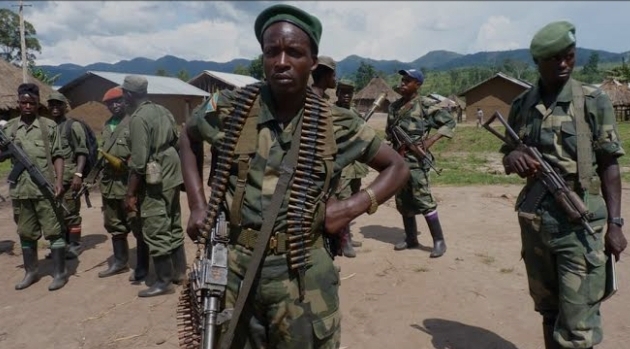The prosecution received 3,363 child defilement cases in 2018/2019 fiscal year, and the conviction rate was 93.7 percent, Jean-Bosco Mutangana, the Prosecutor General has said.
Defilement cases rose from more than 2,000 in the previous year, which Mutangana said is a considerable increase, citing the increase in defilement and rape , and encouraging people to report it as factors that contributed to the rise in prosecuted cases.
He made the revelation on November 22 during a press conference organised by the Supreme Court and the National Public Prosecution Authority (NPPA) in Kigali.
It was held ahead of the Judicial Week due from November 25-29, 2019 in Nyarutarama, Gasabo, Kigali.
According to information from NPPA, conviction rate was 50 percent in 2009, and increased to 81 percent in 2016/2017.
The conviction rate is determined by evidence provided by the accusing party as well as the prosecution during the trial. This implies that lack of evidence can cause the victim to lose a case.
In the last three years, Mutangana said that an estimated 8,000 men, and 234 women, were prosecuted over defilement.
The law determining offences and penalties in general that was enacted in August 2018 defines child defilement as committing any of these sex related acts: insertion of a sexual organ into the sexual organ, anus or mouth of the child; insertion of any organ of the human body into a sexual organ or anus of a child; performing any other act on the body of a child for the purpose of bodily pleasure.
“We do not find the solution to rape or defilement – which leads to teenage pregnancies – in prosecution alone, rather in the article 19 of the constitution which gives responsibility to the family to protect a child, other Rwandans, and the State,” Mutangana said.
“The cases which the prosecution lost was a result of lack of evidence,” he said adding that such a crime is covert because those who commit it do that clandestinely which makes search for evidence a challenge.
Mutangana indicated that some of the victims were impregnated and consequently dropped out of school.
“Most of the people who commit defilement are men. If all men including those from the prosecution, justice sector, police, media, government take the lead in protesting against defilement and teenage pregnancies, such an issue can be curbed,” he observed.
Chief Justice, Prof. Sam Rugege said that there are families which conceal child defilement for fear of humiliation that it can cause to them, or young girls who are worried about consequences that might befall them once it is exposed to the community that they were defiled.
But, in the end, he said, the criminality gets exposed late, yet it should be denounced earlier so that the culprits get pursued.
“The problem that stems from this situation delaying to report the case distorts facts, impairs the investigation and prosecution,” he said.
According to the 2018 law determining offences and penalties in general, upon conviction, any person who commits child defilement is liable to imprisonment for a term of not less than 20 years and not more than 25 years [if the victim is 14 years or older].
However, the law provides that if defilement is committed on a child under 14 years, the penalty is life imprisonment that cannot be mitigated by any circumstances.
Life imprisonment also applies if child defilement committed on a child of 14 years of age or older has resulted in an incurable illness or disability, the penalty is life imprisonment. source newtimes
5 total views , 1 views today



























